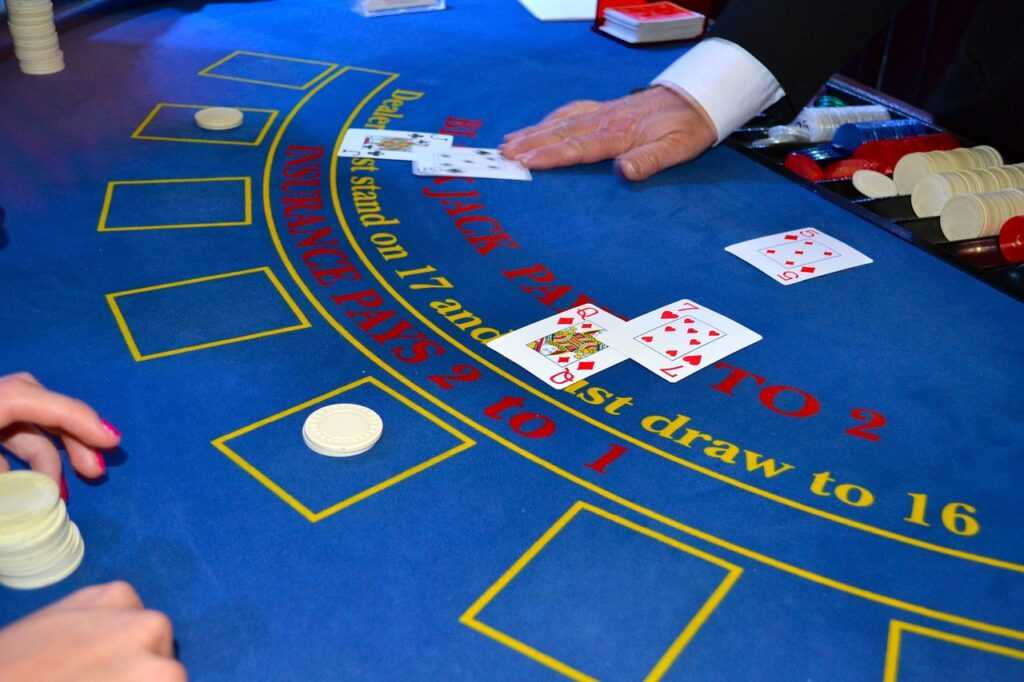Understanding Bankroll Management
Bankroll management is an essential technique for any blackjack player looking to enhance their gameplay. It’s not just about setting aside money; it’s about strategizing and allocating funds to sustain longer playing sessions. Properly managing your bankroll can prevent substantial losses and keep you in the game when challenges arise.
Allocate funds by dividing your total bankroll into smaller betting units. For example, if your bankroll is $1,000, opting for $10 bets gives you 100 individual units. This approach minimizes risk and maximizes potential winnings by aligning your bet sizes with your financial capacities.
Maintain discipline by setting limits. Establish maximum loss and winning limits for each session. If you reach a predetermined loss amount, step away to reassess strategies instead of chasing losses. Conversely, upon reaching your winning target, secure profits and decide whether to continue.
Track results continually to improve your strategy. Keeping records allows you to identify patterns and areas of improvement. Analyze sessions and adjust betting strategies based on data instead of assumptions.
Leverage betting strategies like the Martingale or Paroli system, but ensure they fit within your bankroll constraints. While these strategies offer structured approaches, they can be risky without proper bankroll management in place.
Setting Your Blackjack Budget
Establishing a precise blackjack budget is vital before sitting at the table. This approach distinguishes disciplined players from those who rely solely on luck.
Calculating Your Bankroll

First, I evaluate my overall financial situation to determine how much of my discretionary income I can allocate to gambling. It’s essential to use money that won’t impact daily expenses or savings. Typically, I recommend setting aside a specific amount each month for this purpose. For instance, if my monthly entertainment budget is $500, a reasonable portion could be dedicated to blackjack without compromising my financial stability.
Determining Bet Sizes
After calculating my bankroll, I decide on the size of each bet to control risk effectively. A common rule I follow is limiting each bet to 1-2% of my total bankroll. If my bankroll is $2,000, I set my bet size to $20 or less per hand. This cautious approach reduces the risk of significant losses in a single session, allowing for extended gameplay and better strategic decision-making. Adjusting bet sizes within these parameters based on changing dynamics of the game can further enhance my winning potential.
Implementing Effective Strategies
Understanding bankroll management leads to more strategic blackjack play. I focus on effective techniques to optimize the odds and manage funds efficiently.
Using the Kelly Criterion
- The Kelly Criterion provides a mathematical approach to betting that maximizes long-term growth.
- I calculate the optimal bet size by considering the probability of winning and the odds offered.
- If the probability of a win is 50% with 1:1 odds, the Kelly Criterion suggests betting 10% of the bankroll.
- This method balances potential risks and rewards, enhancing strategic decision-making in various blackjack scenarios.
Setting Win and Loss Limits
- Establishing win and loss limits maintains control over funds and emotional responses during gameplay.
- I determine a reasonable profit target, often around 20% of the session’s bankroll.
- If reached, I cash out to lock in profits. Similarly, setting a loss limit—usually 10-15% of the bankroll—prevents excessive depletion of funds.
- Abiding by these limits fosters a disciplined approach, effectively managing bankroll while allowing for extended play.
Staying Disciplined
Staying disciplined in blackjack bankroll management boosts a player’s chances of success. It’s about maintaining focus and control even under pressure.
Managing Emotions
Controlling emotions is key to staying disciplined. Emotion-driven decisions lead to mistakes and losses. I stay calm by taking breaks and stepping back from the table when emotions run high. Practicing mindfulness helps me remain present and focused, keeping emotions in check during gameplay.
Avoiding Impulsive Decisions
Impulsive decisions often compromise bankroll management. To combat this, I set clear limits on bets before playing. I remind myself to stick to my predetermined strategy and resist making rash decisions based on short-term outcomes. Recording each bet reinforces accountability and reduces impulsiveness.
Tracking Your Progress
Documenting your plays in blackjack is vital for refining your bankroll management strategies. Progress tracking enables one to identify patterns and make informed decisions.
Keeping a Gambling Journal
Writing down details of each blackjack session in a journal helps create a clear overview of your performance. I record crucial information, such as:
- date
- total bankroll
- bet sizes
- wins
- losses
- unusual circumstances
These entries provide a comprehensive view of your gambling habits, revealing potential areas for improvement. By maintaining consistent records, players can avoid repeating mistakes and enhance decision-making.
Analyzing Your Results
Regular analysis of gaming outcomes aids in adjusting strategies effectively. I review my journal entries to pinpoint trends in winnings and losses, determine which strategies work best, and identify negative betting behaviors. Quantifying performance with metrics, like win rate or return on investment (ROI), provides a practical understanding of success levels. This process involves setting achievement goals and aligning strategies to stay disciplined and focused on bankroll management goals.



 Founder & CEO
Williamsonn Grajedaral is the founder and driving force behind Dice Gamblers Deal, a platform dedicated to providing expert strategies, in-depth analysis, and essential updates on blackjack, card games, slot machines, and roulette. With over a decade of experience in the gambling industry, Williamsonn’s passion for gaming and his keen understanding of table game mechanics led him to create a space where players could not only learn but thrive in the world of casino games. As the founder, he sets the tone for the company, shaping its mission to provide players with the knowledge they need to make strategic decisions and increase their odds of winning. Under his leadership, Dice Gamblers Deal has grown into a trusted resource for both novice and experienced players, offering expert tips, comprehensive guides, and the latest gambling trends. Williamsonn’s dedication to the community ensures that Dice Gamblers Deal remains at the forefront of the gaming world.
Founder & CEO
Williamsonn Grajedaral is the founder and driving force behind Dice Gamblers Deal, a platform dedicated to providing expert strategies, in-depth analysis, and essential updates on blackjack, card games, slot machines, and roulette. With over a decade of experience in the gambling industry, Williamsonn’s passion for gaming and his keen understanding of table game mechanics led him to create a space where players could not only learn but thrive in the world of casino games. As the founder, he sets the tone for the company, shaping its mission to provide players with the knowledge they need to make strategic decisions and increase their odds of winning. Under his leadership, Dice Gamblers Deal has grown into a trusted resource for both novice and experienced players, offering expert tips, comprehensive guides, and the latest gambling trends. Williamsonn’s dedication to the community ensures that Dice Gamblers Deal remains at the forefront of the gaming world.
